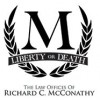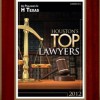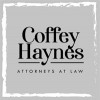
Fewer communities in the United States have seen more growth in recent years than the suburbs of North Texas, and Denton County is no exception. Whether a person has recently relocated from another part of the country or is a longtime local of the area, many people can find themselves feeling frightened and overwhelmed if they face criminal charges in Texas.
However, an arrest for driving while intoxicated (DWI, also known as driving under the influence or DUI) does not automatically result in a conviction. With the help of skilled and proven legal representation, initial criminal charges can be significantly reduced or possibly even completely dismissed.
However, an arrest for driving while intoxicated (DWI, also known as driving under the influence or DUI) does not automatically result in a conviction. With the help of skilled and proven legal representation, initial criminal charges can be significantly reduced or possibly even completely dismissed.
Services
Dwi
Report
Nobody intends to be arrested for driving while intoxicated (DWI, also known as driving under the influence or DUI). Many people face these charges after believing they were able to safely operate motor vehicles. A person who has been charged with DWI in North Texas needs to understand that a conviction is not automatic.
Administrative License
Report
A Texas driver's license may be suspended for a variety of reasons, including DWI offenses. As in other states, Texas may impose both criminal and civil (administrative) penalties related to driving while intoxicated (DWI, also known as DUI or drunk driving.) Because of "implied consent, " it is not even necessary for a person to be convicted or even charged with DWI to receive an automatic Administrative License Revocation (ALR).
An arrest for driving while intoxicated (DWI) in Denton County and in surrounding counties, including Parker, Wise, and Cooke, usually involves some fairly harsh penalties. However, the nature of the offense becomes even more serious if the alleged offender is accused of driving with an alcohol concentration or blood alcohol content (BAC) of 0.15 or greater.
Bwi
Report
So many people are under the impression that criminal cases about operating vehicles while intoxicated are all about people driving automobiles while intoxicated. However, a vehicle is defined as a "thing used to transport people or goods", and this includes boats and other water vehicles.
Once you add in the fact that alcohol is often consumed during boating events and activities, it is easy to see why Texas heavily enforces the laws they have in place.Texas law enforcement officers are committed to enforcing laws pertaining to Boating While Intoxicated (BWI). If you're operating watercraft, you are not allowed to be physically and/or mentally handicapped by the consumption of alcohol.
Once you add in the fact that alcohol is often consumed during boating events and activities, it is easy to see why Texas heavily enforces the laws they have in place.Texas law enforcement officers are committed to enforcing laws pertaining to Boating While Intoxicated (BWI). If you're operating watercraft, you are not allowed to be physically and/or mentally handicapped by the consumption of alcohol.
Commercial Dwi
Report
People who drive trucks or buses professionally are subject to some laws that do not apply to other drivers. Both federal and Texas laws hold commercial drivers to a higher standard regarding alcohol consumption, with lower thresholds of legal impairment than for other drivers.
The Federal Motor Carrier Safety Administration (FMCSA), a division of the U.S. Department of Transportation (USDOT) has established that the operation of a commercial vehicle by a driver with a blood-alcohol concentration (BAC) of 0.04 or more is illegal (49 Code of Federal Regulations, Section 382.201).
The Federal Motor Carrier Safety Administration (FMCSA), a division of the U.S. Department of Transportation (USDOT) has established that the operation of a commercial vehicle by a driver with a blood-alcohol concentration (BAC) of 0.04 or more is illegal (49 Code of Federal Regulations, Section 382.201).
Reviews

Be the first to review Law Offices Of Richard C. McConathy.
Write a Review



